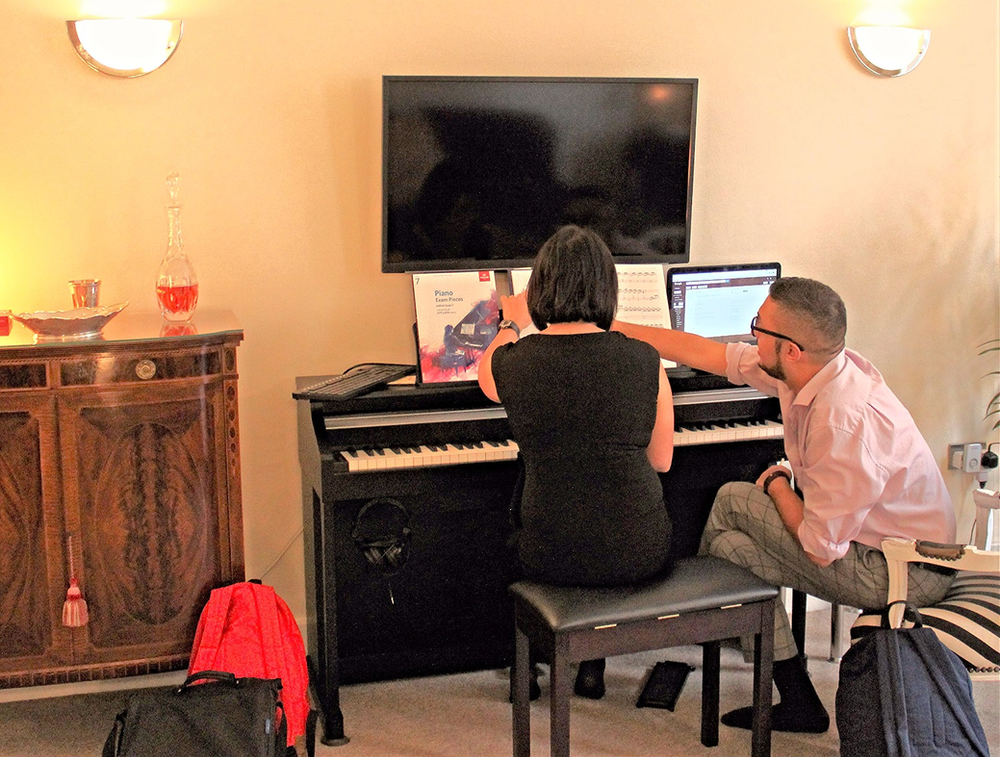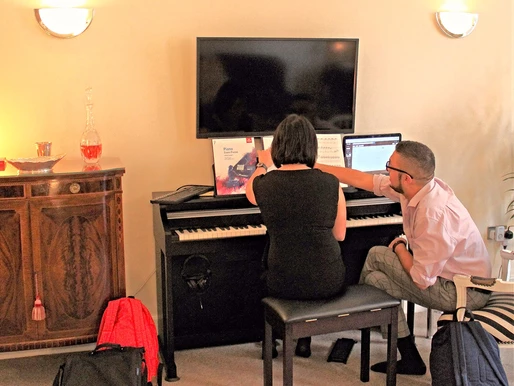Uncategorized
Context is Everything When Learning Music

Context is Everything When Learning Music
I am a firm believer in context when it comes to any piece of music – to me, context is everything, and is something which music teachers must place on the same level as technique and musicianship. My contextual approach is based on my training in historical performance – although at this point I must stress that context and historical verisimilitude are not one and the the same thing.
Therefore, despite my speciality being the performance of music from the early 17th, 18th, and early 19th centuries on period instruments and period instrument reproductions, when looking at any piece of music I am initially less concerned with finding the ‘right’ instrument and more concerned with thoroughly contextualising the music in question – with the most important consideration being that rhetorical dialects and grammars from the past are vastly different to our own – because at the end of the day one must realise that, short of time travel, we can never be fully ‘authentic’, but we can certainly be historically informed.
This thorough contextual approach – which lies at the core of my teaching and which I advocate alongside having a foolproof technique and solid musicianship (a ‘triple threat’ approach which also has its roots in the musical training of the distant past) – is intended to challenge students in a manner that encourages regular paradigm shifts, thus ensuring significant long-term development.
Context is everything when it comes to music, and it’s a belief that I hold strongly. As a music teacher, I prioritize context on the same level as technique and musicianship. My approach is informed by my training in historical performance, although I want to make it clear that context and historical verisimilitude are not the same thing.
While my specialty is in performing music from the early 17th, 18th, and early 19th centuries on period instruments and period instrument reproductions, I’m less concerned with finding the “right” instrument when looking at a piece of music. Instead, I focus on contextualizing the music thoroughly, understanding that rhetorical dialects and grammars from the past are vastly different from our own. It’s important to remember that, short of time travel, we can never be fully “authentic,” but we can be historically informed.
My teaching style centers on this thorough contextual approach, which is designed to challenge students in a way that encourages paradigm shifts and fosters significant long-term development. In addition to a foolproof technique and solid musicianship, I believe that this “triple threat” approach has its roots in the musical training of the distant past.
In summary, music is not just about playing the notes correctly. It’s about understanding the context in which the music was written, the historical and cultural influences that shaped it, and the rhetorical and grammatical conventions of the time. Only by considering all of these elements can we truly bring a piece of music to life and communicate its message effectively to our audience.
Thank you for reading, and I hope this has given you some insight into my approach to teaching music.
#pianolessonsforadults #PianoteachersLondon #pianoteachers #Pianoteachers #pianoteacherlondon #pianoteachersLondon #ianbugeja

